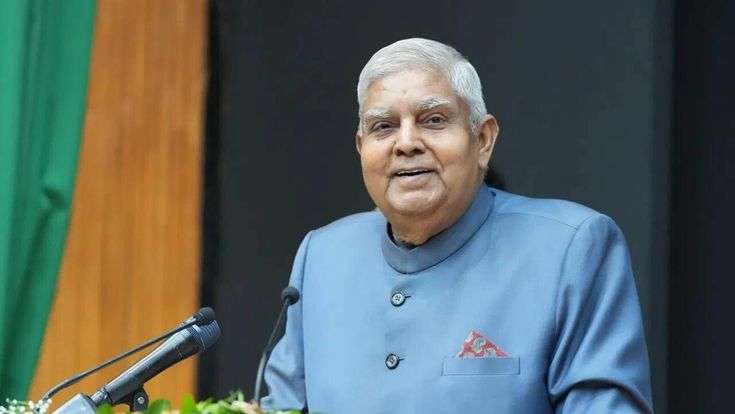
In a significant reiteration of India’s constitutional framework, Vice President Jagdeep Dhankhar recently made strong remarks emphasizing the primacy of Parliament in the country’s governance. Speaking at an event hosted by Delhi University, Dhankhar reignited a long-standing debate around judicial overreach, asserting that no authority stands above Parliament in matters of constitutional interpretation and democratic governance.
The Vice President strongly asserted that the content of the Constitution is ultimately determined by elected officials, emphasizing that the Constitution does not envision any power superior to Parliament. Parliament is supreme.” His comments arrive in a politically sensitive climate where the boundaries between the legislative, executive, and judicial branches are under constant scrutiny.
Dhankhar, who also serves as the Chairman of the Rajya Sabha, has consistently spoken about maintaining a balanced institutional structure, where each arm of the government respects the jurisdiction and authority of the other. However, his latest statements have triggered a wave of discourse across political and legal spheres, with some interpreting his words as a cautionary note against judicial activism.
The Vice President also alluded to recent Supreme Court acknowledgments that there have been allegations of judicial overreach into the domains of the executive and legislature. Without directly naming specific verdicts, Dhankhar hinted that some court decisions could be seen as interventions into policy matters that are traditionally within the purview of elected representatives.
Critics argue that Dhankhar’s statements could undermine the role of the judiciary, which serves as a vital check on the potential excesses of the legislature and executive. The judiciary’s power of judicial review has long been recognized as a cornerstone of India’s democratic architecture, ensuring that all laws and actions are consistent with the Constitution.
On the other hand, supporters of Dhankhar’s stance view it as a legitimate call to protect the mandate of the people. They argue that in a democracy, elected representatives must be empowered to take policy decisions without undue interference, and that the separation of powers must be respected to maintain constitutional order.
Legal experts note that while parliamentary supremacy is essential, it must operate within the framework of constitutional supremacy. The Constitution of India, as the supreme law of the land, gives the judiciary the authority to interpret laws and ensure they are consistent with fundamental rights and democratic values.
Dhankhar’s remarks also open up a broader conversation about the evolving role of each constitutional pillar in a modern, digital, and politically vibrant India. As the country continues to navigate complex governance challenges, the interplay between Parliament and the judiciary will likely remain a critical factor in shaping India’s democratic future.
The Vice President concluded by encouraging more civic awareness and public participation in debates about the Constitution. He underscored that understanding the roles and limits of each institution is key to preserving the spirit of democracy and safeguarding the rights of every citizen.
With India’s democratic institutions under the global spotlight, Dhankhar’s reaffirmation of parliamentary sovereignty has set the stage for deeper discussions on the future of constitutional governance in the world’s largest democracy.

